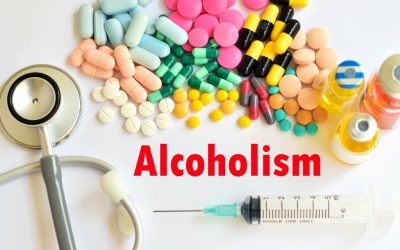Content
Especially behavior that is aggressive, delinquent, or criminal. Be sure to start a conversation if you have any concern about their drinking, and get support if needed. Productive communication with your teen or young adult doesn’t always have to feel like you’re giving them the third degree. Remain calm, relax and follow the tips below to ensure that your child hears what you have to say — and vise versa. Don’t end the conversation when your child moves out or goes to college.
The American Academy of Pediatrics (AAP) views underage drinking as a serious health issue. Here’s what parents and caregivers need to know about underage drinking and how you can help kids make healthy choices about alcohol, now and in the future. For teens, drinking impairs memory and learning, but motor control is significantly less affected. For instance, in animals, it takes adolescents about 50 minutes to recover from a sleep-inducing dose of alcohol, whereas adults take three times as long to recover. In contrast, when administered alcohol before a memory test, adolescents are significantly impaired, whereas adults remain intact.
Parents’ Corner
When someone is under the influence, they are usually easily distracted and are unable to focus on a single task for too long. This may become apparent when they’re doing school work or chores around the house. In the United States, consuming alcohol under the age of 21 is considered underage drinking and is strictly against the law. Drinking underage comes with legal consequences including mandatory community sober house service, suspended license, fines and potential time in jail. Not only do individuals put themselves in danger, but they also put others in jeopardy if they get behind the wheel of a car or become violent. According to data provided by the Centers for Disease Control and Prevention (CDC) and SAMHSA, alcohol use is a significant factor in the deaths of many young people who are under the age of 21.

Regarding industry sponsorship of sport and youth events, about one-third of European countries report having voluntary agreements in place, while one-quarter have no restrictions (WHO, 2019). If teenagers’ parents or other family members have a history of alcohol abuse, they’re much more likely to drink. This factor causes some researchers to believe that alcohol abuse may have a genetic component. Some of the warning signs listed above can also be signs of other problems. Parents may recognize signs of trouble and possible use of alcohol and other drugs with their teenager. If you have concerns you may want to consult a physician to rule out physical causes of the warning signs.
Remember, you were a teenager once
Talk to a treatment provider today to explore available treatment options. Join the thousands of people that have called a treatment provider for rehab information. We’re here 24/7 to help guide you or your loved on through rehab and recovery. Submit your number to receive a call today from a treatment provider.
- With these measurements, we hope to identify vulnerable brain circuitry that may suggest risk factors that could lead to the use of alcohol as well as misuse of alcohol and other substances.
- This doesn’t mean that they love or care about you any less.
- Also check out the resources listed below to get help for your teen and your family.
Just remember that most teens do not drink regularly, so you are not alone. Check out the following Q&A to update your knowledge of alcohol and teen drinking. Share this information with a friend, especially if you know someone who is an underage drinker. If saying no to alcohol makes you feel uncomfortable in front of people you know, blame your parents or another adult for your refusal. Saying, “My parents are coming to pick me up soon,” “I already got in major trouble for drinking once, I can’t do it again,” or “my coach would kill me,” can make saying no a bit easier for some.
Start the road to recovery
Prevention of alcohol abuse in younger individuals starts at home. If you think you have a drinking problem, get help as soon as possible. If you can’t approach your parents, talk to your doctor, school counselor, clergy member, aunt, or uncle. It can be hard for some people to talk to adults about these issues, but a supportive person in a position to help can refer students to a drug and alcohol counselor for evaluation and treatment. Underage alcohol consumption is common in the United States and can have harmful outcomes. A comprehensive approach that includes effective policy strategies can prevent underage drinking and related harms.

People who are intoxicated may think they’re moving properly when they’re not. That’s when Congress stepped in and mandated nationwide legal drinking age of 21 by threatening to withhold federal highway funding to those states that did not increase the drinking age. In the late 1960s and early 1970s, in the Vietnam war era, many states dropped their legal drinking age to 18.
Reach out to a treatment provider for free today for immediate assistance. According to APA, SAMHSA, and the CDC, there are other reasons that younger individuals may try alcohol. These figures illustrate the seriousness of alcohol use in individuals under the age of 20. Teens who drink put themselves at risk for obvious problems with the law (it’s illegal; you can get arrested). Teens who drink are also more likely to get into fights and commit crimes than those who don’t. Millions of readers rely on HelpGuide.org for free, evidence-based resources to understand and navigate mental health challenges.
